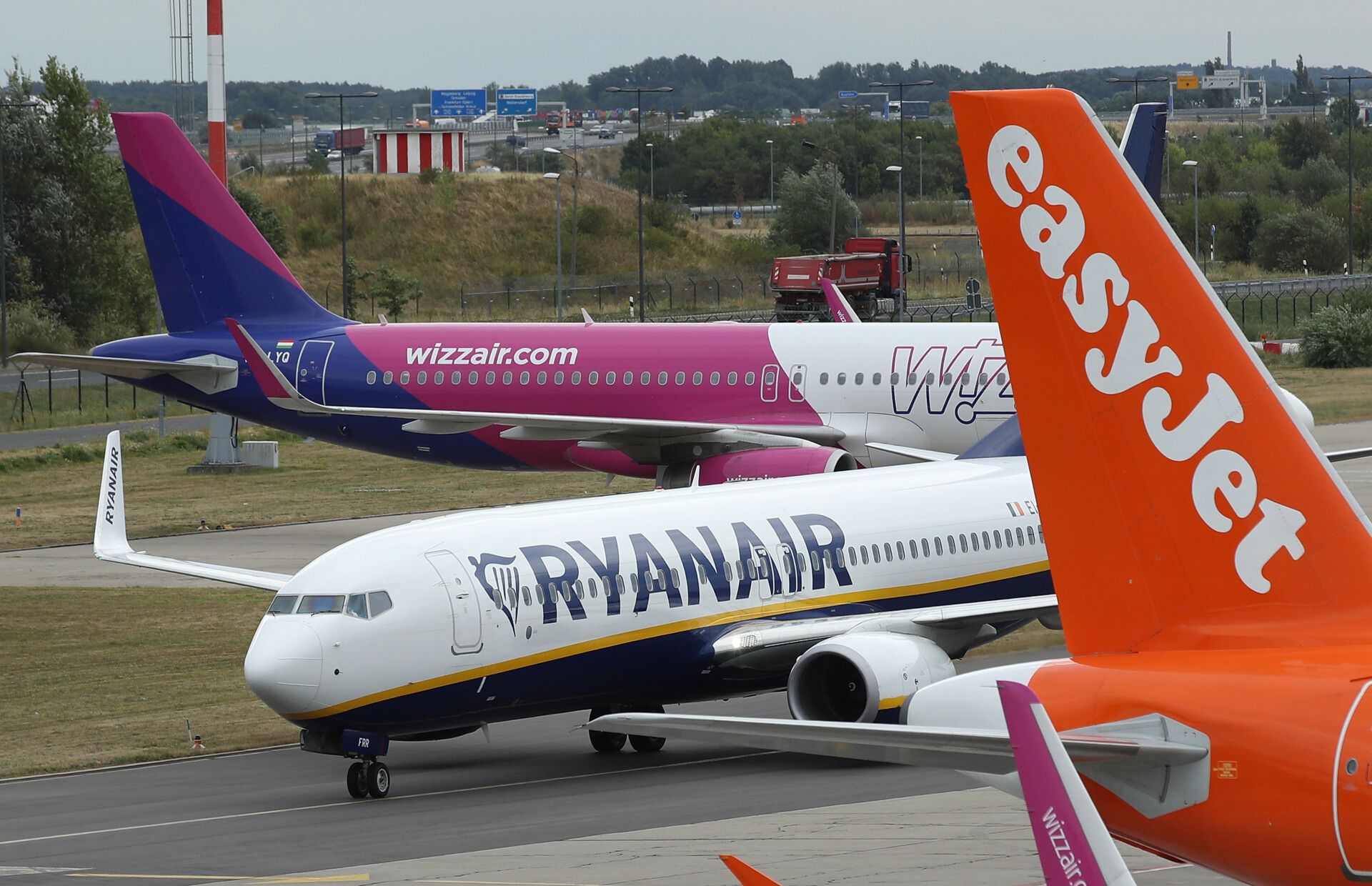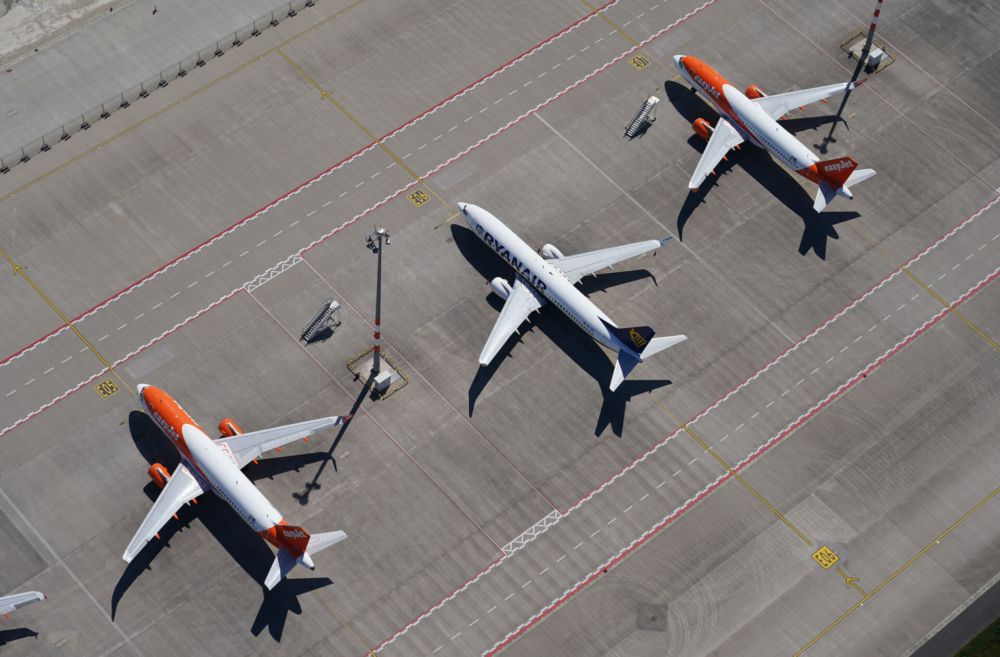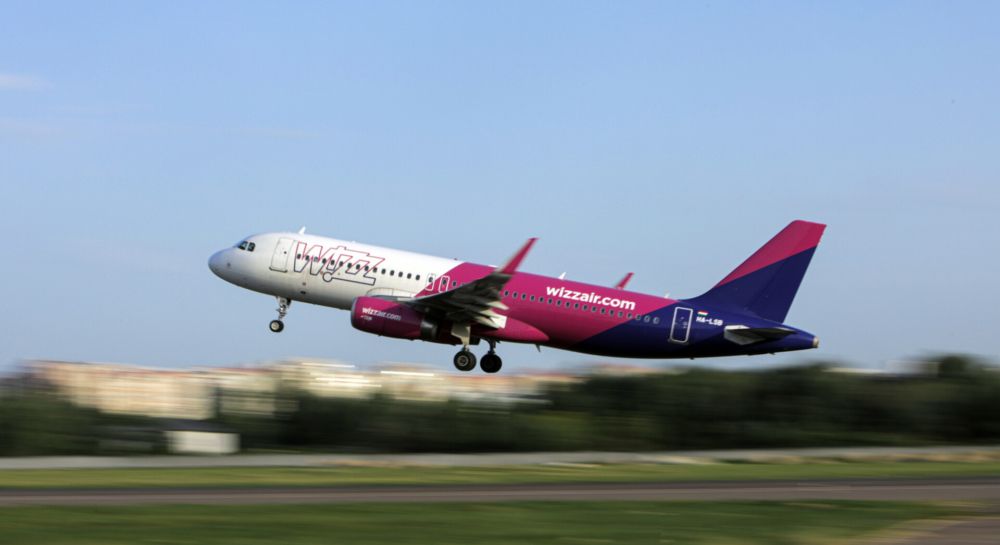During the EUROCONTROL Sustainability Summit in Brussels on Monday, the low-cost carriers may have taken turns arguing over who is the greener of the bunch. However, they were in agreement on one somewhat surprising point. Michael O'Leary of Ryanair, József Váradi of Wizz, and Johan Lundgren of easyJet all believe that some form of green tax on airlines is valid and even necessary, as long as it is transparent - and fair.
Current proposals 'badly designed'
With the somewhat disheartening news that only 1% of Ryanair passengers choose to willingly offset their carbon emissions when offered to do so by the airline, it is apparent that something else has to give while the industry is waiting for decarbonizing technologies. While budget carriers have been accused of lobbying against environmental taxes directed at airlines, they seem to have turned a corner in their approach to fiscal policy.
However, taxation must be based on certain principles, they say. For easyJet's Johan Lundgren, the most crucial question comes down to transparency - and that the tax actually goes towards supporting decarbonization efforts. Furthermore, he is convinced that the taxation currently being discussed will cause social segregation.
"There are systems being put in place right now that are too focused on suppressing the demand by putting badly designed taxes in place. This means that you will have rich, wealthy, privileged people continue to fly as if nothing has happened. You will drive social inequality while removing revenue from the industry that should go towards investing in new technology," Lundgren said, adding that a kerosene tax instead of a ticket tax would be fairer and align with the pay-to-pollute principle.
Today's suggested environmental taxation is based on the Maximum Take-Off Weight (MTOW) of an aircraft. This, airlines and others agree, is counterproductive. More modern aircraft with less fuel consumption most often have heavier engines and thus a higher MTOW than their older, less efficient counterparts.
Stay informed: Sign up for our daily and weekly aviation news digests.
Wizz calling for pressure from regulators
Meanwhile, Wizz Air founder and CEO József Váradi is not sure that enough achievements will be accomplished on a voluntary basis. While saying that the EU Fit for 55 package is a 'bit of a joke', he is supportive of a transparent system for taxation, which would also, unsurprisingly, include more responsibility from the polluting long-haul legacy carriers.
"Regulators need to put pressure on innovation and technology. We need to change, and we need to adapt. All of the elements of the value chain need to come forward. (...) It needs to be coming from the top."
Ultimately, some carbon tax is needed
Meanwhile, Michael O'Leary is also of the opinion that not much will come from voluntary measures. Along with taking a swing at government-protected legacy carriers, he is also concerned with the individual traveler's willingness to pay more to protect the environment. When discussing environmental taxation during Monday's keynote address, this is what he had to say,
"I think that's the only way you address consumers who want low fares. (...) They're kind of willing to have some sort of environmental tax because we agree as long as somebody else is paying that environmental tax - rich people preferably. So ultimately, we need some form of carbon taxation system."
What do you think of green taxation for the aviation industry? What should it be based on and look like in order to be fair? Leave a comment below and tell us who you think should pay and why.



